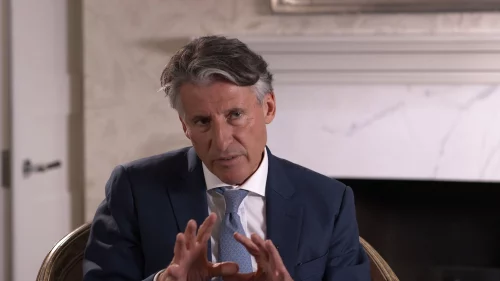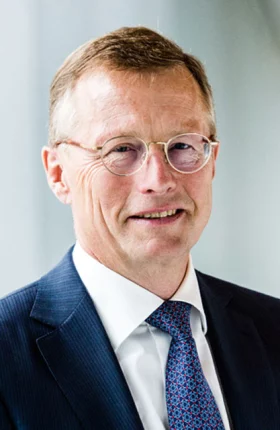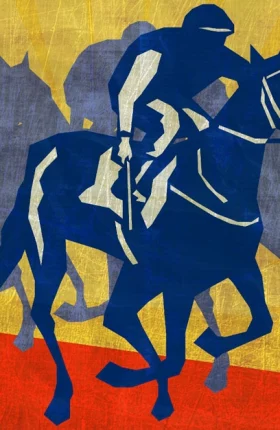When it comes to extracting lessons about leadership from the world of sports, there may be no better teacher than the legendary Olympian and former member of Parliament, Lord Sebastian Coe. Lord Sebastian met with Jesper Nielsen, a senior partner and managing director at BCG, to share insights he has gained over the course of a highly diverse and rewarding career. Their discussion covered an array of topics valuable for business leaders seeking to build exceptional teams and maximize their own performance. For instance, topics included consideration of how to recover and grow from setbacks, how to navigate major changes in one’s career trajectory, and how to keep teams motivated under the most challenging of conditions.
About Lord Sebastian Coe
About Lord Sebastian Coe
Winner of Four Olympic Medals, Former Member of Parliament of the United Kingdom, Orchestrator of the 2012 London Olympics, President of the International Association of Athletics Federations
Lord Sebastian made his name as one of the world’s greatest athletes, setting 12 world records and garnering four gold and three silver medals in the Olympics and European Championships. With a true passion for sports and strategic skills, he guided London’s winning bid to host the 2012 Olympics. After London was awarded the Olympic Games in 2005, he became the chair of the London Organising Committee of the Olympic and Paralympic Games.
He served as a Conservative member of the House of Commons from 1992 to 1997 and was elevated to the House of Lords as a life peer in 2000. In 2003, he became a council member of the International Association of Athletic Federations, and he was appointed vice president of the IAAF in 2007. In 2015 he was elected president of the IAAF. He was made an Officer of the Order of the British Empire in 1991, was promoted to Knight Commander in 2006, and was invested as a Companion of Honour in 2013.
In the 1980s, there were a lot of talented track athletes, and you were among the best. What are the factors that determined your level of performance?
I would start from a very basic premise. That is, what I achieved in the 1980s was probably set in stone during the 1970s. So by the time I got to the Moscow games in 1980, and then the 1984 games in Los Angeles, I certainly had more than a decade under the bonnet of systematized training and working with the smartest people of their generation.
I guess that once the foundation stones are in place, the rest is being able to master the complexity of the distances that you choose. Then there’s the championship environment, which is much more complicated than simply a one-off race: there are many more variables that you have little or no control over.
You had a number of great wins in your career but also some setbacks. How does one get over the setbacks and emerge stronger?
I think a big mistake in life is to assume that only when you win do you succeed, and when you lose, everything else around you is a failure. The race that taught me most about the potential for my future was a race I lost. What matters is how you interpret the nature of a loss. Some people hide from it. Some think, Well, OK, in a different set of circumstances, on a different day, if the wind isn’t blowing and the sun is shining, and if I get up feeling better about myself, then it sort of happens. But there are no happy accidents in life. Athletics is project management. It’s the ability to bounce back but not to bounce back and repeat the same errors. It’s the ability to bounce back and then drive forward and put mitigating actions in place, which themselves add risk. There are no risk-free options in human performance.
Were there any setbacks that led you to fundamentally rethink what you were doing, or was change more incremental?
I lost the European Championships in 1978. At the end of the day, I sat down with my coach. We realized that the market had moved in a particular direction. Doing the same old things in the way that generations of athletes had done them was not enough to secure a number-one position, but most important, to secure a number-one position and make sure that I stayed there for a decade.
We recognized that we needed more skill sets, more disciplines at the table. So slowly but surely, we built up a backroom team. They happened to all be American at that stage: the Americans were practically applying what in most countries was an academic science—physiology and anatomy of biomechanics. That set the tone for the rest of my athletic career, and it made me understand what putting a team together was about. I learned about assuming personal responsibility within the team—with all of us moving in the same direction with an iron vision that we would not depart from.
Athletics was only the beginning of your career. You moved on to politics. Do you have any advice for business people or other professionals regarding how to think about moving through different chapters of their careers?
If you’d asked me this question 30 or 40 years ago, it wouldn’t have been an important question: we believed we were going to stay in the same sector in the same type of job throughout our careers. I have children who are in their twenties. They are routinely recognizing that they’re probably going to make three—maybe even four—career shifts.
The advice that I always give athletes who are making such moves is: just because you’re an Olympic gold medalist, you cannot assume that you’re going to go in at the same level in your next career. When I went into politics, I started in the basement.
My third career move was the synthesis of my competitive sport and all the craft I understood from politics. I pulled together a bid team and, ultimately, an organizing committee for a complex project. It required the stakeholder management that I osmotically understood through both politics and the ability to work within an athletic team.
You led the successful win of the 2012 Olympics and, as the chairman, organized it as well. During that period, how did you keep your team performing and motivated?
I encouraged everybody on my team to spend time not just focusing every day of the week on how to deliver but also to take a bit of time and always ask themselves, Why am I doing this? You want teams whose first response when things get tough is not to look for the lifeboats, but to figure out that they’re a part of a journey. Also, if you have the right people, and you are unerring about the qualities that you’re looking for, then don’t micromanage them.
What advice, based on your career to date, would you give business leaders and chief financial officers?
You’ve really got to want to do what you’re doing. I think there is another fundamental as well: there is no such thing in any project as the risk-free option. I think it is also about making sure that you are consistently curious about your landscape. You know: How far can this organization go?






